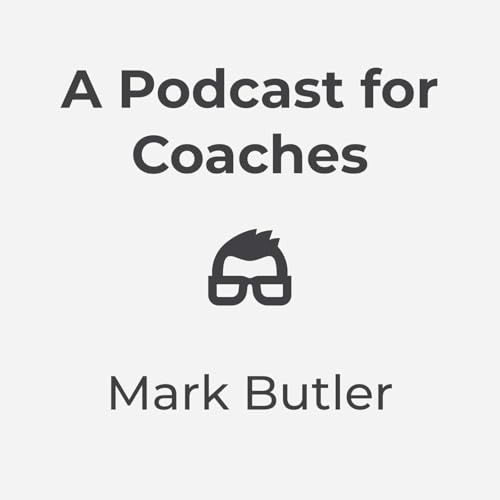Coaching Session with Joyce: Money Mindset & Relationship Dynamics
Episode Summary
In this coaching session, I help "Joyce" explore her beliefs around money, particularly how she feels responsible for meeting her "wants" while relying on others for basic needs. The conversation evolves from financial concerns into deeper relationship dynamics around desire, communication, and self-betrayal.
To hear my follow-up conversations with Joyce, start a 30-day trial of Office Hours with Mark.
Timestamps
[00:00:00] Introduction; Joyce identifies money as her top concern
[00:01:00] Joyce explains her core belief: she's responsible for providing her own "wants" while relying on others (previously her father, now her husband) for basic needs
[00:02:00] Discussion of Joyce's interest in coaching as a potential income source; feeling pressure to earn money for things her husband's income can't provide
[00:03:00] Joyce's conflict between entrepreneur vs. employee paths; observation of her father's entrepreneurial experience
[00:04:00] Mark asks Joyce to clarify what she considers "needs" versus "wants"
[00:05:00] Joyce defines her values: holistic health products, personal development, travel with family
[00:06:00] Discussion of financial trade-offs; Joyce mentions feeling they don't have cash for her "wants" without incurring debt
[00:07:00] Mark compliments Joyce on framing the decision space well; suggests making vague desires more specific
[00:09:00] Joyce reveals it's more about the feeling of financial freedom than specific purchases
[00:10:00] Mark shifts focus to Joyce's relationship with money; asks why she feels the need to hold onto money
[00:11:00] Exploration of Joyce's financial security fears; Mark guides her through worst-case scenarios
[00:14:00] Discussion of safety nets (family, church) that make true destitution unlikely
[00:16:00] Mark observes that Joyce's real fear is embarrassment/shame about financial struggles
[00:17:00] Joyce connects this to her identity of being financially independent; pride in never asking family for help
[00:18:00] Mark asks Joyce to share her thoughts about people who've made poor financial choices
[00:20:00] Discussion about whether spending money is foolish; Joyce notes it depends on alignment with values
[00:21:00] Conversation about grocery budget tensions between Joyce and her husband
[00:23:00] Mark observes husband's conservative financial approach; Joyce feels they've reduced expenses as much as possible
[00:24:00] Joyce explains she wouldn't put her income in "the family pot" but would keep it separate for "extras"
[00:26:00] Discussion of financial decision-making in the marriage; Joyce has deferred to husband on major decisions
[00:28:00] Mark asks how the couple discusses desires and wants; Joyce says such conversations get "slapped with reality"
[00:30:00] Joyce describes difficulty maintaining an abundance mindset when her husband operates from scarcity
[00:32:00] Mark suggests framing as relationship challenge rather than money problem; recommends conversation approach
[00:34:00] Discussion about connection without agreement; Joyce notes husband's behavior doesn't change despite listening
[00:36:00] Mark emphasizes importance of honest desire without self-betrayal or relationship conditions
[00:38:00] Joyce realizes she keeps desires to herself to avoid negative emotions; Mark notes this reveals deeper relationship disconnection
[00:39:00] Discussion of next steps; Joyce recognizes she's gone as far as she can without involving her husband
[00:40:00] Mark emphasizes that greatest potential is achieved in relationship, not alone
[00:41:00] Joyce acknowledges she can only ask and offer; Mark cautions against using assumed resistance as an excuse
[00:43:00] Mark suggests Joyce explore job options to clarify what she wants; session wrap-up
![[Full Coaching Call] Slapped with Reality: Difficult Conversations About Money in Marriage](https://m.media-amazon.com/images/I/31ex6t2o8bL._SL500_.jpg) May 22 202544 m
May 22 202544 m 16 m
16 m May 9 202514 m
May 9 202514 m May 1 202524 m
May 1 202524 m Apr 25 202517 m
Apr 25 202517 m 32 m
32 m 20 m
20 m 38 m
38 m
